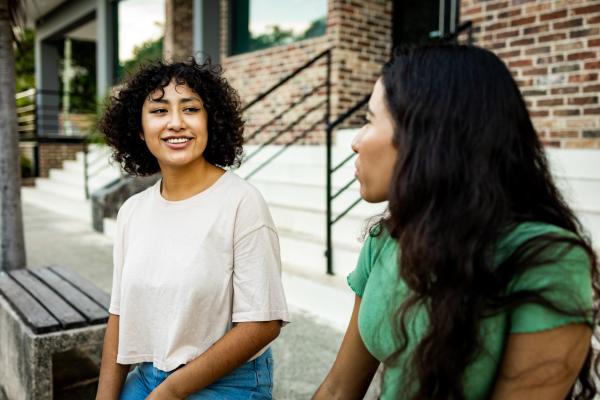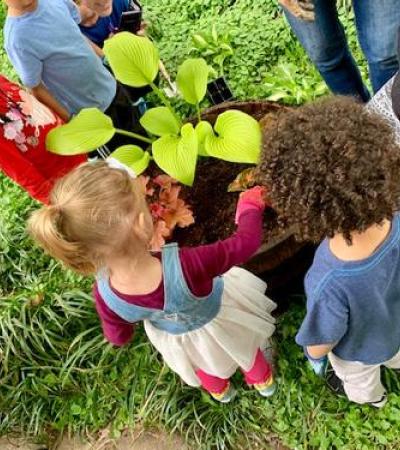Blog post author Lynn Williamson is the chief of the Free Library of Philadelphia’s Neighborhood Library Services Division, the project manager of Skills for Community-Centered Libraries and a participant in Cohort 6 of the trainings. Read more about the Skills for Community-Centered Libraries project at their blog.

The Free Library of Philadelphia has completed the second full year of the IMLS grant Skills for Community-Centered Libraries, and we recently received a Year 2 report from our outside evaluator. It’s a good moment to look back, see how far we’ve come, and plan for and anticipate the culminating year of this training.
Together with our curriculum designers, we cast a wide net seeking content for a public-library based community engagement curriculum. We knew early on that it was important to make this training available and accessible to both professional and para-professional employees. Our seven public library partners helped us brainstorm on the training needs of urban, suburban and rural public libraries during a meeting in March 2018.
The curriculum was written, edited and revised during the summer of 2018, and the first Free Library cohort took the training in October 2018. Since that time, the Free Library has trained 147 employees. We encouraged constructive criticism from the beginning of the cohort trainings, and the Year 2 Evaluation Report summarizes staff response from Cohorts 1 – 4, with some data included through Cohort 6. Using staff feedback, we have made curriculum revisions in sequencing, eliminating some content and augmenting other material that was well received. We have also made edits to improve the structure and flow of some of the training activities.
The Year 2 evaluation reports on nine key findings. More than 75 percent of participants reported being satisfied with the workshops. Generally, librarian staff were satisfied with the workshops, although many described the content as overly basic. Not surprisingly, many front-line librarians reported that they did not learn something that they could implement immediately because they report using many of the skills of the training already. Paradoxically, non-librarian staff appeared to find the curriculum new and much more beneficial.
A key part of the curriculum at the Free Library is a required 24-hour project for each participant, which we believe is important in helping to identify and put into immediate practice aspects of the training that are professionally meaningful to them. Many staff who have completed projects have shared them at cluster meetings and reported on them through blog entries under the term "community-centered." I encourage all who are interested to review these posts, which demonstrate deep innovation and growth. However, some staff reported not being able to complete their projects due to short-staffing. The Free Library has recently been able to hire a large group of new librarians, as well as to promote a number of para-professional staff. Extensions to project deadlines have been granted to all who have requested them. With more robust staffing levels, it is anticipated that those who were unable to complete their projects previously may be able to find time to devote to this important piece.
An interesting part of the initial participant feedback was a commonly held sentiment that staff enjoyed the time that they spent together, getting to know each other across job assignments, and learning from each other. This is a key framing message that I hope we were able to communicate to new training participants in response to some initial dissatisfaction. As staff of a learning institution, we learn every day and apply that new knowledge toward our professional lives, as a sort of practice. Having the space and time to reflect on and share successes, failures, hard-won lessons and expertise is a key value. Each of our participants has knowledge to share with others, no matter how long they have been working for the library or what their job class is.



